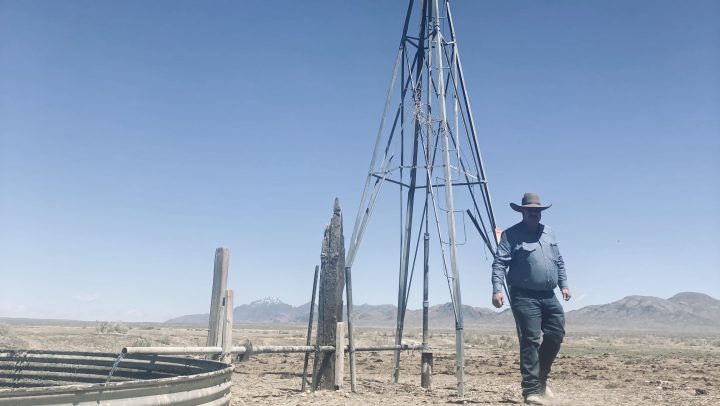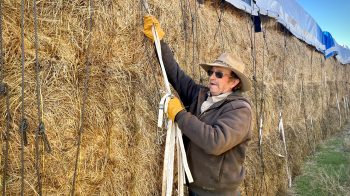
Family ties, history connect rancher with troublesome wild mustangs
Family ties, history connect rancher with troublesome wild mustangs

If you’re a rancher and you want to graze your cows on public land, the government tells you when you can turn them out and when you have to bring them in. Wild horses, on the other hand, roam wherever they want and eat whatever they find, year-round.
More than 80,000 wild horses roam the West. If you want to see them, Nevada should be your first stop. More than half of all the mustangs in this country live in Nevada, which also happens to be the driest state. In many areas, nevertheless, their population is rising, thanks to a lack of natural predators.
Nevada has some pretty harsh country. There’s not much for horses — or cows — to eat. And that makes some ranchers pretty upset about having to share grazing land with more and more wild horses.
Bradie Vincent ranches with her husband and his family in northwestern Nevada. When their Herefords and Black Angus cows are out on the range, she said, they have to compete with wild horses for grass.
“There’s nothing for the cows by the time spring turnout comes because the horses have already had it.” And, Vincent said, they’re destructive. The horses tear down fences and paw through water troughs and pipes.
“It’s months and months of work and money trying to fix everything that these mismanaged animals are destroying because everybody’s like, ‘Oh, you know, they’re pretty.’”
Will DeLong’s family has been ranching outside Winnemucca, Nevada, for five generations, and he’s dealt with some of those same challenges.
DeLong grazes his cows on land he leases from the federal Bureau of Land Management. In recent years, though, he had to make a tough decision. There was so little grass for his cows, because of all the wild horses, that he kept his cattle at home. That meant he had to buy more hay for them, and hay prices are up.
“You know, I take pride in my cattle being in good shape. And I don’t want them starving somewhere, because it won’t make me any money and it won’t do the cattle any good,” DeLong said.
Wild horses have cost DeLong a lot of money in hay and property repairs. So, you might think he’d want the horses rounded up. But, in fact, the history of DeLong’s family is entwined with the wild mustangs.
In the early 1900s, his great-grandfather would catch and sell them to help make ends meet. Long before the Bureau of Land Management took over wild horse management in the 1970s — and made it illegal for private citizens to catch or kill mustangs — DeLong’s family was managing the wild horses in the area.
They kept the numbers in check by catching some horses to train and ride but also releasing their own domestic mares and stallions to breed with and enhance the wild stock. That meant there was a sort of permeable genetic boundary between domestic and wild horses — and his family felt responsible.
“They managed the horses so that they were better horses all the time. They wanted to have the best horse they could out on the range.” DeLong spoke fondly about the mustangs his family has trained and ridden over the generations. His father had a beautiful buckskin named Gypsy. A lot of the horses on the ranch today are her descendants. Then there was Pinto Pete, the mustang DeLong rode as a kid.
He said he hopes there are always mustangs on the range. But right now, according to biologists with the Nevada Department of Wildlife, there are more than five times as many wild horses in Nevada as the fragile, arid rangelands can support.
“When they’re at the level of where they’re supposed to be at, or close to it, they’re not a challenge. If they’re managed to the right numbers, we’re used to ‘em. I like seeing them, actually,” he said. Even if they do compete with his cattle.
There’s a lot happening in the world. Through it all, Marketplace is here for you.
You rely on Marketplace to break down the world’s events and tell you how it affects you in a fact-based, approachable way. We rely on your financial support to keep making that possible.
Your donation today powers the independent journalism that you rely on. For just $5/month, you can help sustain Marketplace so we can keep reporting on the things that matter to you.

















